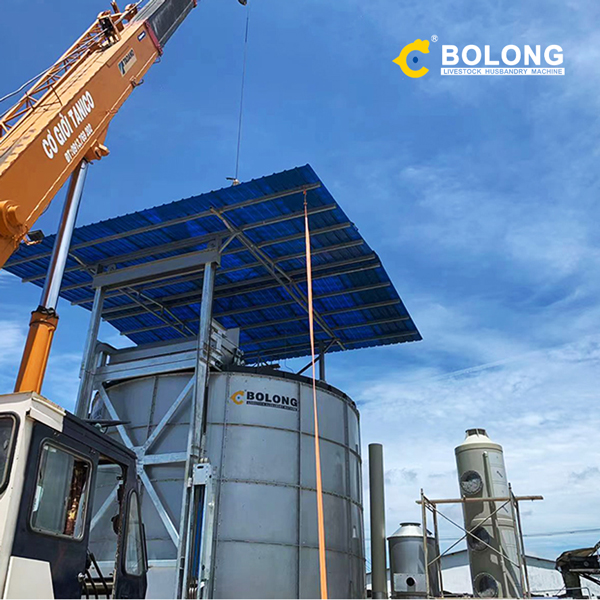Introduction: In addition to their environmental benefits, Bolong Fermentation Tanks offer significant economic advantages for livestock farmers. This article explores the economic benefits of using Bolong Fermentation Tanks for manure management.

Reduced Fertilizer Costs: By converting manure into high-quality compost, Bolong Fermentation Tanks reduce the need for synthetic fertilizers. Farmers can use the compost produced to fertilize their crops, saving on fertilizer expenses and reducing reliance on external inputs.
Improved Crop Yields: The compost produced by Bolong Fermentation Tanks enhances soil fertility and structure, leading to improved crop yields. Higher yields translate into increased revenue for farmers, making the investment in fermentation tanks economically beneficial.
Waste Management Savings: Proper manure management can be costly, involving expenses for storage, transportation, and disposal. Bolong Fermentation Tanks streamline the manure management process, reducing these costs. The tanks process manure on-site, eliminating the need for expensive storage and transportation solutions.
Revenue from Compost Sales: Farmers can generate additional revenue by selling excess compost. The high-quality compost produced by Bolong Fermentation Tanks is in demand for use in agriculture, landscaping, and gardening. This provides an additional income stream for farmers, enhancing their overall profitability.
Case Study: A pig farm implemented Bolong Fermentation Tanks to manage its manure. The farm reduced its fertilizer costs by using the compost produced and increased its crop yields. Additionally, the farm sold excess compost to neighboring farms, generating extra revenue. The investment in Bolong Fermentation Tanks paid off within a few years, demonstrating their economic benefits.

Conclusion: Bolong Fermentation Tanks offer significant economic benefits for livestock farmers, including reduced fertilizer costs, improved crop yields, waste management savings, and additional revenue from compost sales. These advantages make them a valuable investment for sustainable and profitable farming.